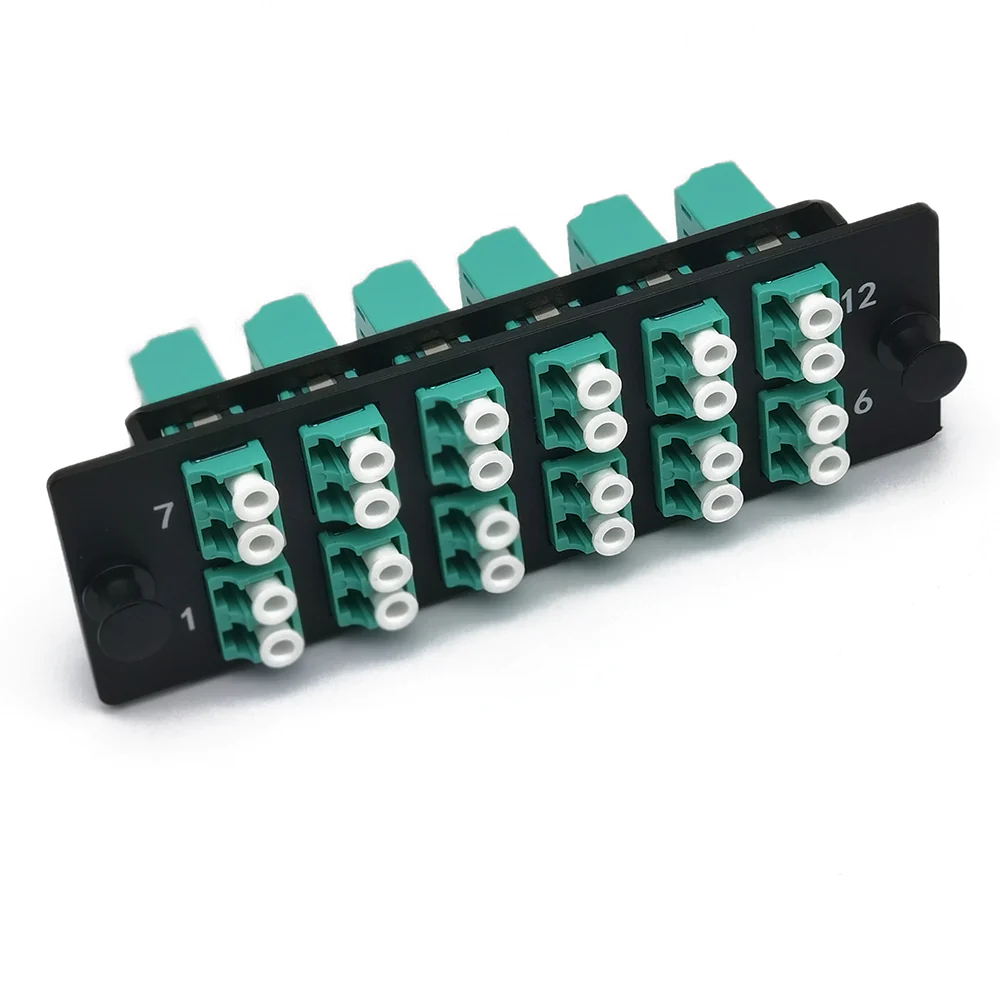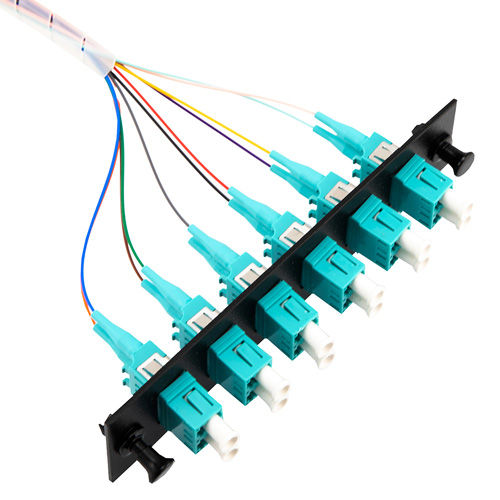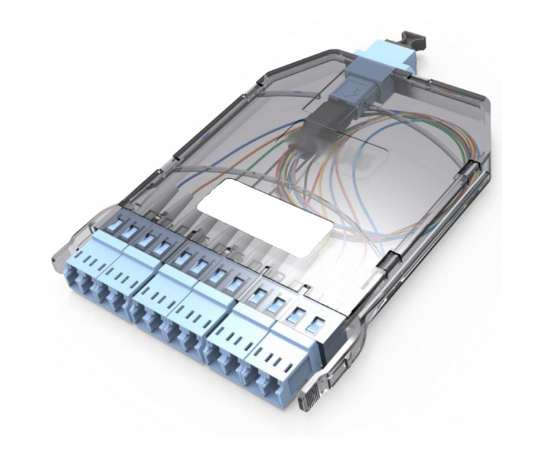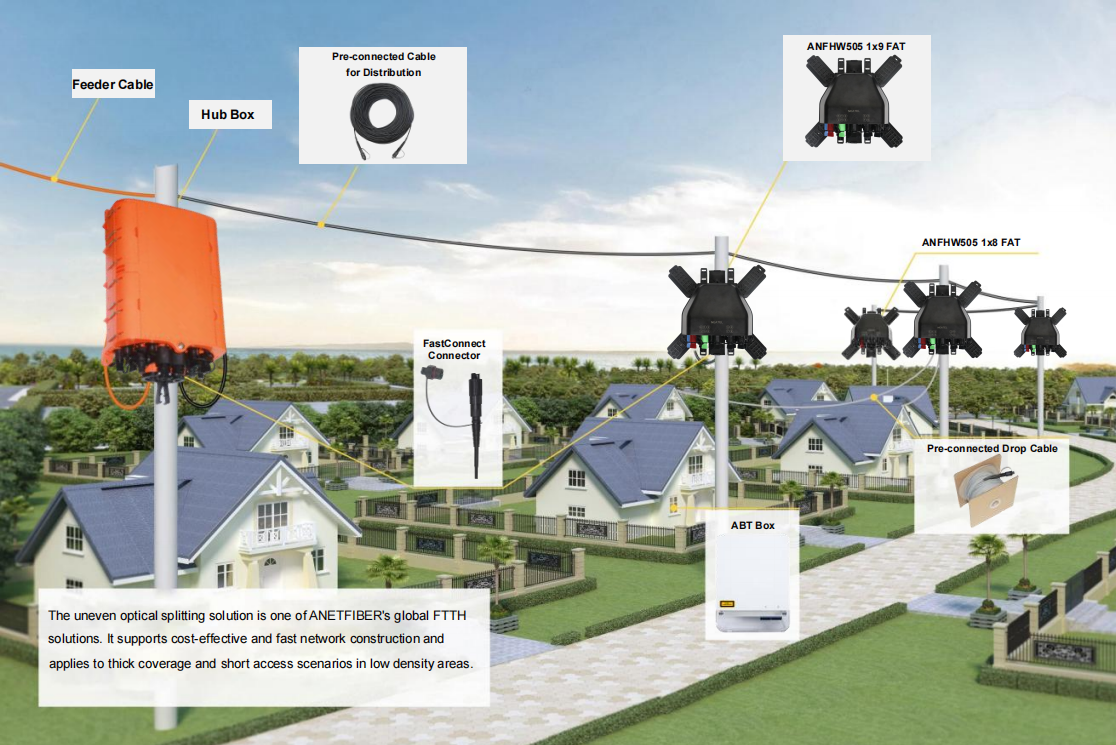LC Series Fiber Adapter Panels: OS2 Single Mode vs. OM4 Multimode Solutions

Understanding LC Series
The LC series fiber adapter panels are integral to fiber optic network solutions, facilitating seamless connectivity and data transmission. These panels are essential for ensuring efficient communication within the network. Understanding the distinctions between OS2 single mode and OM4 multimode solutions is crucial for selecting the most suitable option. By comprehending the unique features and applications of each type, network administrators can make informed decisions when choosing the appropriate LC series fiber adapter panels.
Overview of LC Series
Importance of LC Series
The significance of the LC series fiber adapter panels lies in their role as the physical interface for connecting fiber optic cables. These panels come in various configurations, catering to different port densities and connector types. Their adaptability makes them essential components for establishing seamless connections within a network infrastructure.
Applications of LC Series
The LC series is extensively utilized across various sectors, including data centers, telecommunications, and enterprise networks. Due to their capability to support high-speed and high-bandwidth applications, these fiber adapter panels are integral in facilitating efficient data transmission and communication within these environments.
Understanding OS2 Single Mode Solutions
Characteristics of OS2 Single Mode
OS2 single mode solutions are specifically engineered for long-distance transmission, utilizing a single mode fiber to minimize signal loss and ensure reliable data transfer over extended distances.
These fiber solutions are designed to accommodate high-speed data applications, making them ideal for scenarios where consistent and rapid data transmission is essential.

Advantages of OS2 Single Mode
The key advantage of OS2 single mode solutions lies in their ability to provide higher bandwidth and support longer transmission distances when compared to multimode options. This makes them well-suited for applications that demand high data rates and unwavering reliability.
By leveraging OS2 single mode fiber cables, organizations can ensure seamless connectivity and efficient data transmission across expansive network infrastructures.
Exploring OM4 Multimode Solutions
Features of OM4 Multimode
When considering OM4 multimode solutions, it's essential to recognize their ability to support multiple light modes, making them suitable for short-range transmissions within a network infrastructure. These solutions are known for being cost-effective, which has contributed to their widespread use in local area networks and data centers. The versatility of OM4 multimode fiber cables makes them an attractive option for scenarios where short-range, high-speed data transmission is required.
Benefits of OM4 Multimode
The benefits of OM4 multimode solutions are evident in their ability to offer high data transmission rates while remaining compatible with various network applications. Their flexibility makes them easy to install and maintain, providing a convenient solution for network administrators. Additionally, the cost-effectiveness and compatibility of these solutions contribute to their appeal in diverse networking environments.
Factors to Consider When Choosing Fiber Cables
Transmission Distance and Bandwidth
When selecting fiber cables for a network infrastructure, it's essential to consider the required transmission distance and bandwidth. The choice between OS2 single mode and OM4 multimode solutions depends on these specific factors. For long-distance transmissions and high bandwidth requirements, OS2 single mode fiber cables are more suitable due to their ability to support extended transmission distances with low signal loss. On the other hand, OM4 multimode fiber cables are ideal for short-range transmissions with high data rates. By evaluating the specific application needs and network requirements in terms of transmission distance and bandwidth, network administrators can make informed decisions regarding the most appropriate fiber optic network solutions.
Installation and Maintenance
Another crucial aspect to consider when choosing fiber cables is the ease of installation and maintenance. Both OS2 single mode and OM4 multimode fiber cables have distinct characteristics in terms of installation complexity and maintenance requirements. Evaluating these factors is essential for ensuring seamless integration into the existing network infrastructure while considering long-term operational costs and scalability. By factoring in these aspects, organizations can optimize their network performance by selecting the most suitable fiber adapter panels and cables for their specific requirements.

Comprehensive Understanding of LC Series
Considerations for Network Optimization
Selecting the appropriate LC series fiber adapter panels and cables is crucial for optimizing network performance and ensuring reliable data transmission.
The distinctions between OS2 single mode and OM4 multimode solutions are fundamental in making well-informed decisions regarding fiber optic network solutions.
It's essential to carefully assess specific application requirements and consider future scalability when choosing the most suitable fiber optic solutions for a network infrastructure.
See Also
Maximizing Data Center Efficiency with MPO Trunk Cable Solutions
Exploring Fiber Optic Cable Types: Single-mode vs. Multi-mode
Maximizing Cost-Effectiveness with Quick Assembly Connectors for Round Drop Cables
Exploring Balanced and Unbalanced PLC Splitters in Telecommunication Infrastructure
Understanding ABS Module: A Key Component for FTTH Applications
About US
Follow Us
AnetFiber company's main products are indoor and outdoor optical fiber cables, outdoor waterproof pre-connected fiber-to-the-home products, PLC optical fiber splitters, optical fiber jumpers and pigtails, MTP®/MPO high-density big data product solutions, optical fiber field quick connectors and research and development molding, injection molding and production of optical fiber distribution boxes, optical fiber chassis cabinets, the market has expanded to the world, Europe, America, Asia, the Middle East and Latin America.
Address
Shenzhen City, Baoan District, Yanluo Street, Tangxiayong Community, Yangyong Industrial Road, Tonggangda New Energy Vehicle Park 406
Contacts
+86 199 2655 3586

